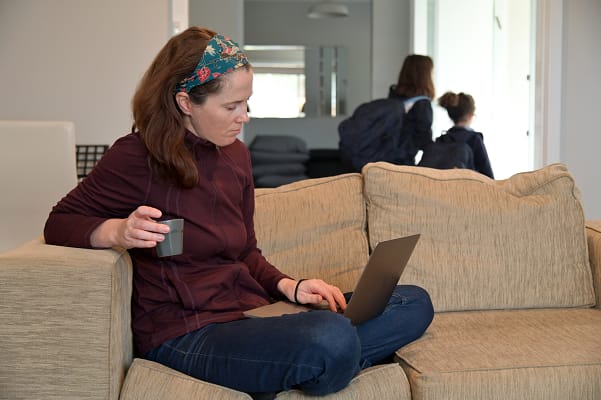Three years after the pandemic saw offices close down, around the world, the remote-work revolution has evolved into a point of tension between frustrated bosses and fed-up staff.
Whilst employers are now incentivising their workers to return to the office, many staff members don’t want to give up the flexibility that remote working offers. Evident by a study from Bloomberg, which unveiled that only 20% of respondents preferred working from the office, yet this has lead to a shocking number of workers feeling lonely as a result.
In addition to this new research from Rethinkly – a leading workplace wellbeing platform used to navigate difficult conversations in a virtual reality space – unveiled that in the era of hybrid working, 25% of the British workforce feel like they have no voice in their workplace. Coming as no surprise that what many experts are touting as a “productivity crisis” post-pandemic could be traced back to how hybrid working models are implemented in the workplace.
In theory, days spent in the office offer cultural benefits and greater opportunities to collaborate, yet that doesn’t always happen. As companies return to a hybrid working model, it is imperative that they have proper structures in order to make sure that all team members feel like they’re contributing to their company’s culture. As both US and UK productivity levels were both flailing in the wake of the pandemic, with the US Surgeon general declaring an “epidemic of loneliness”, the mental health crisis that is currently affecting workers can be often exacerbated for those working from home.
At a time when absenteeism due to poor mental health is rife and productivity is at its lowest, the founders of Rethinkly, the metaverse software that allows users to recreate uncomfortable scenarios in a virtual safe space – allow employees at all levels to create and foster psychological safety in their workplace. Used widely within the NHS and by corporate firms such as IBM, Rethinkly’s software removes all real-world references to create a safe space that is designed to inspire autonomy of expression.
Andrew Jackson, co-founder of Rethinkly said, “Hybrid working comes with a whole of positives and negatives, just like any other model. What is key is to figure out the challenges your specific organisation is facing and then put in the suitable mechanisms across the organisations – not just at the executive level – to help everyone ope with the challenges they are experiencing. We suggest getting a temperature gauge of your talent. Whilst employee surveys are a good starting point, digging deeper for qualities is powerful.
“The biggest challenges we tend to see are communication, collaboration and keeping people aligned. Most of the time, miscommunication is the starting point. It can happen quickly within a team or project, even when everyone is in the same room leading to a breakdown in collaboration and alignment. This can be doubly hard when working in a hybrid situation where some people are face-to-face, but others are on screen and might not even have their cameras on.
“New world problems require new solutions, and businesses should not rely on old HR processes or approaches to deal with these new ways of working. We need to think about how we leverage technology differently, not just be an enabler of hybrid working but to support the health of the organisations and culture in this new flexible work. And that means finding solutions that can scale across your business and being flexible to empower team members no matter where they are located. ”






Leave a Comment